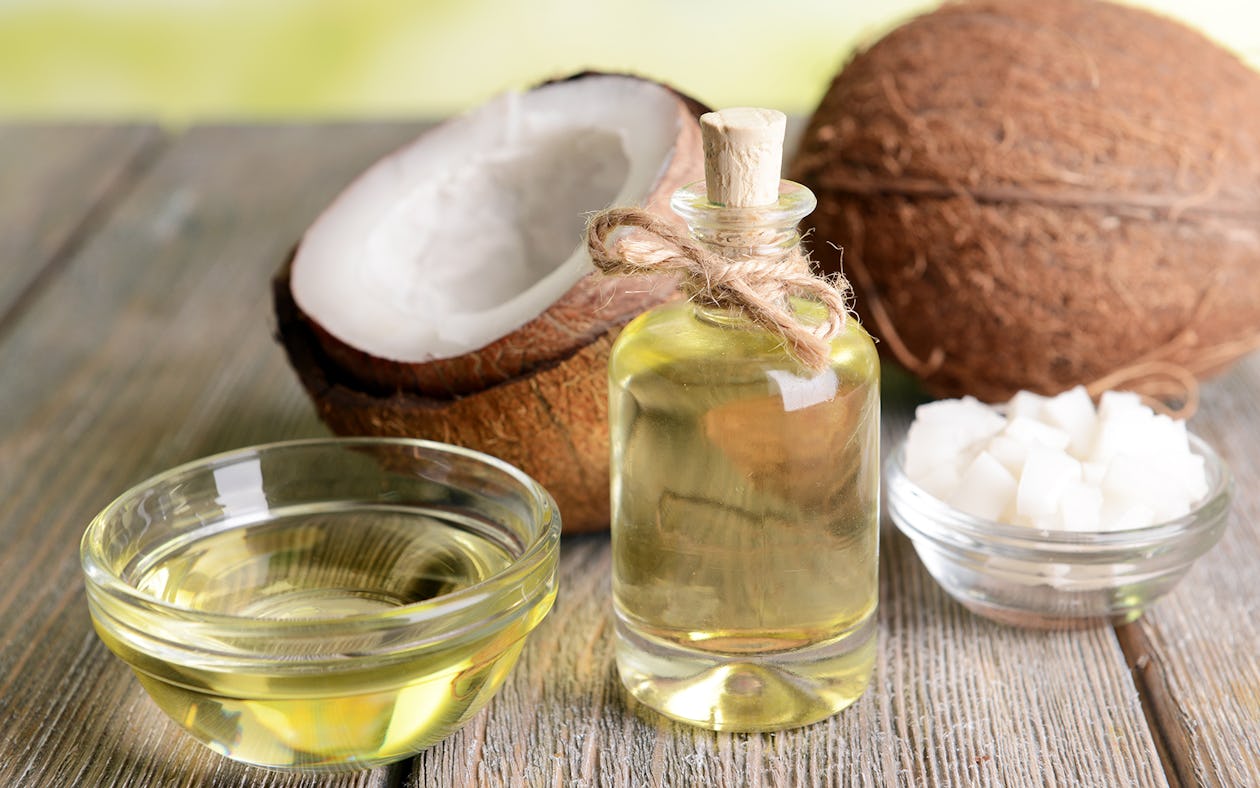Coconut oil use has skyrocketed over the past few years in the United States! For good reason, this fruit has many uses, is shelf-stable and can assist in metabolism, fat-burning and brain function.
A few key benefits:
Coconut oil contains an average of 60% MCT (Medium Chain Triglyceride). This type of fat is like rocket fuel for the brain and body.
The MCT can bypass most of the digestion process and is quickly used for fueling the brain and body.
Coconut oil aids digestion and increases the absorption of other nutrients and amino acids. Think of coconut oil as a transportation shuttle sending your other nutrients around the body.
Coconut oil is an antimicrobial and may be beneficial against infections, yeast and bacterial overgrowth and even athlete’s foot.
Did you know human breast milk naturally contains MCT’s? It is a crucial component of the diet for even the tiniest developing brain and body. Get your coconut oil for yourself and breast milk for your newborns!
4 More Super Foods
When people hear the word Superfood, they immediately think of some exotic fruit only found in the heart of the Amazon rainforest.
While the Amazon rainforest, also known as the “Lungs of the Earth” provides ingredients for 1 out of every 4 medicines, the foods we are discussing today can come from a source much closer than you may think.

Superfood #1: Grass-Fed Beef
Conventional ideologies and negative connotations about red meat have remained in the consciousness of Americans and many other modern cultures for way too long.
A few key benefits:
Vitamin E content is 4 times higher in Grass-fed beef than grain-fed beef, as well as being an important antioxidant for preventative health care.
According to Nutrition Data, Grass-fed beef can contain similar amounts of Omega-3 as Salmon and Tuna.
CLA (Conjugated Linoleic Acid) a type of fatty acid found naturally in Grass-fed beef, helps the body burn fat, reduce sugar cravings and provide support cardiovascular health. CLA content is much higher in grass-fed beef than conventional grain-fed beef.
Grass-fed Beef contains 2 to 4 times more Omega-3 Fatty Acids than conventional, grain-fed beef. Omega-3 deficiencies have been linked to cognitive dysfunction and other mental malaise.

Superfood #2: Spinach
Popeye wasn’t joking when he said to eat your spinach. This is one of the most versatile, inexpensive, nutrient-dense and easy to grow foods.
Need more reasons to get your greens?
Spinach aids digestion and can ease the intestinal damage caused by toxic, inflammatory compounds such as gluten, high-fructose corn syrup and canola oil.
Lutein is an important component of animal fats, egg yolks and plants. High levels of lutein in the eyes have been shown to enhance vision and reduce the chances of losing your eyesight with age.
Spinach is pretty minimal in taste and can be disguised by throwing a handful into a smoothie with the addition of kale, a few berries and a source of quality protein. Talk about a power, digestion and energy boost!

Superfood #3: Blueberries
Have you seen blueberries flourishing in sunlight in the garden? How can such a precious fruit not shrivel up in the sun? Blueberries contain an antioxidant named anthocyanin which protects them from the sun!
Here’s some reasons you should have blueberries in your Superfood food stash:
The protection against the sun that blueberries have can provide the same effect for us. Eating blueberries can provide a natural UV protecting effect for our skin.
Blueberries are naturally low in sugar, providing a minimal insulin response and can act as a treat in someone’s diet who is missing the sweet taste from the soda or candy they used to consume.
Usually, the darker the fruit, the more nutrients and vitamins it contains. Blueberries are no exception and rate near the top of the charts for overall best fruits to consume.

Superfood #4: Eggs
Just like your grandmother gathered fresh from the coop not long ago, eggs play a beneficial part of your diet if you’re looking to achieve health, strength and energy.
Most people raising livestock for eggs have ducks and chickens. If you aren’t able to raise your own, chicken eggs are the most widely available and affordable.
Egg allergy is the second most common food allergy in the Western World. Some people may have an allergy to chicken eggs and can have digestive problems. In this case, I recommend switching to duck eggs as some may find relief from their distress.
Before we get into the benefits, a quick reminder is to NOT throw out the yolks! Somehow the health industry has convinced the population that egg yolks are unhealthy. More than a few restaurants and cafes offer an egg white sandwich or meal.
Often times these establishments even charge extra to have egg whites. After all, willingly throwing out beneficial compounds and nutrients should cost you!
Now, here are some of the reasons eggs should be in your fridge:
Meats and proteins are made up of amino acids. Eggs happen to contain L-Tryptophan and Tyrosine. These two amino acids directly create our energy and happiness brain chemicals.
The neurotransmitters, serotonin and dopamine which allow us to have a stable, happy and energetic mood are created from these amino acids. Next time you encounter a grumpy person, feed them an egg or two.
Raw egg yolks provide more antioxidants than an apple.
Estosterone, an important hormone for both men and women, is created from cholesterol. Just like coconut oil, eggs are a dense and high quality source of cholesterol.
As you can see, we didn’t have to venture in to the Amazon to find these Superfoods.
Browse eatwild.com or localharvest.org and get ahold of a local farmer and supplier for your meat and produce. This helps support the grassroots movement of healthy, organic and local food for your city!
What Do Healthy Labels Mean?
There is a lot of deceptive marketing in the food industry that we may save for a more in-depth discussion. However, if something is not labeled “Organic” it’s probably not. “All-natural” means nothing when it comes to your eggs and meats.
Look for a seal specifying it’s organic nature or seek out the source for yourself. It can be an empowering experience to shake the person’s hand who raised your food. You can always grow it yourself too.
Organic foods are always best, but non-organic meats and eggs will always be healthier than twinkies and ho-ho’s. Purchase what your budget allows and evaluate your other expenses. Food comes first, after rent, right?



